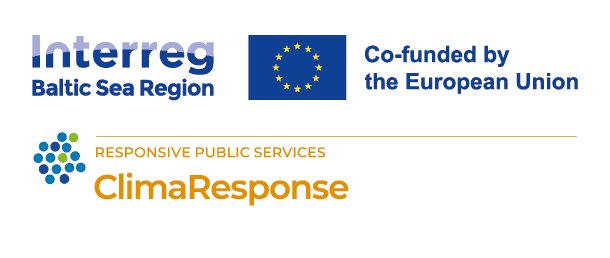
ClimaResponse Voices #2: Evelin Piirsalu, SEI Tallinn
08 October 2025
Evelin Piirsalu is a Senior Expert at the Green and Circular Economic Transformations Unit of the Stockholm Environmental Institute’s Tallinn centre, and ClimaResponse project partner.
In ClimaResponse, the Stockholm Environment Institute Tallinn Centre (SEI Tallinn) bridges research, policy, and practice to strengthen local climate resilience. It develops practical tools and methods for monitoring and planning, such as guidance on weather sensor networks, dashboards for tracking adaptation measures, and ways to engage vulnerable groups in decision-making. SEI Tallinn also supports the pilot in Lääne-Harju Municipality, promotes knowledge exchange across the Baltic Sea Region, and helps share the project’s results through the wider SEI network.
What does climate resilience mean to you, Evelin, in the context of your organisation’s work?
Climate resilience at SEI means enhancing the capacity of social-ecological systems to respond and transform amid disruptions. We focus on equitable resilience, ensuring all stakeholders can prepare for and respond to climate hazards, minimising vulnerabilities and promoting sustainability.
Why do you think building climate resilience is especially important right now?
Climate change impacts such as heatwaves and heavy storms are becoming more evident each year, and cities need to deal with these. Building resilience allows us to avoid greater damage to society.
What do you hope the ClimaResponse project will achieve? What concrete impact do you hope it will have?
We hope the project will equip subnational authorities with practical tools and innovative solutions for effective climate adaptation and disaster risk reduction, such as an easy-to-follow CR planning model. The concrete impact we hope to see is our partners advancing in their adaptation implementation.
What is your organisation’s role in ClimaResponse?
We are a content partner developing guidance for 1) establishing urban weather sensor networks, 2) monitoring and visualising the effects of CR measures, and 3) CR planning, including engaging vulnerable groups in the process. We will also support piloting in these areas.





